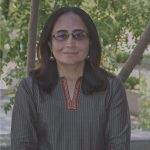
Rimjhim Aggarwal’s
research and teaching interests lie at the interface between sustainability science and international development. A central focus of her research has been on examining the links between globalization, resilience of social-ecological systems, and human well being. In current research she is examining the emerging conflicts in the framing of water as a human right as well as an economic, ecological and social good in rapidly urbanizing regions, with focus on Delhi, São Paulo and Johannesburg. She is also currently engaged in research projects examining the impacts of globalization and climate change on agricultural and water governance, farm livelihoods, and food security in India, Nepal, Thailand, and Arizona. Dr. Aggarwal has also worked as a senior consultant for the United Nations University’s World Institute for Development Economics Research and the World Bank. In recognition of her efforts in “use-inspired research” and “community outreach,” Dr. Aggarwal was awarded the Arizona State University President’s Award for Sustainability in 2010.

Zaman Ali
earned his law degree (B.A.LLB Hons.) from Jindal Global Law School, NCR Delhi in 2014. While attending law school, Ali researched economic conditions of Latin American countries, especially Venezuela, as a part of the Research Centre on Global Relations. He has attended introductory courses on US and French Law at New York University School of Law and the University of Iowa’s program in Arcachon/Paris, respectively. Subsequently, he attended a semester course on “Transnational Commercial Law” from the Law School of European Business School, in Germany, as an exchange student. As a component of his experience abroad and while interacting with people from different sectors and industries, Ali realized that the most noble and impactful work lies in working for public interest. His affection for geography and nature have driven Ali to work on environmental litigation in Mumbai since his graduation. He currently works with the litigation division of the Human Rights Law Network’s Mumbai office and continues to appear in cases before the Bombay High Court and the National Green Tribunal.
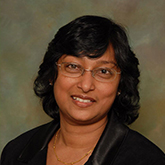
Sumudu Anopama Atapattu
is the Director of Research Centers and Senior Lecturer at UW Law School. She teaches in the area of International Environmental law and climate change and human rights. She holds an LL.M. (Public International Law) and a Ph.D. (International Environmental Law) from the University of Cambridge, U.K., and is an Attorney-at-Law of the Supreme Court of Sri Lanka. Her books include: “Human Rights Approaches to Climate Change: Challenges and Opportunities” (2015, Routledge, U.K); “International Environmental Law and the Global South” (2015, Cambridge University Press) (co-editor); and “Emerging Principles of International Environmental Law” (2006, Transnational Publishers, New York). She is affiliated with UW-Madison’s Nelson Institute for Environmental Studies, the Center for South Asia, and the 4W Initiative and was a visiting professor at Doshisha University Law School, Japan, in summer 2014 and Giessen University, Germany in summer 2016. She also coordinates the Human Rights Program at UW-Madison.
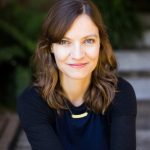
Madeline Baer
received her Ph.D. in political science from the University of California, Irvine and is currently Assistant Professor of Political Science at San Diego State University. Baer’s research explores the relationship between states, markets, and human rights through the lens of water policy in Latin America. She has published a number of book chapters and articles on human rights and water policy, including in Studies in Comparative International Development, the Journal of Human Rights, and Third World Quarterly. Her current book project, provisionally titled Stemming the Tide: Human Rights and Water Policy in a Neoliberal World, explores the implications of defining access to water and sanitation services as human rights with a focus on water policy in Chile and Bolivia. Prior to attending graduate school, she spent several years traveling and working for human rights and social justice organizations in Guatemala, El Salvador, Nicaragua and Mexico.

Nicolas Bujak
is a Ph.D. candidate in Environmental Science at the Institute of Energy and Environment, University of São Paulo. He holds a BS in Biology from the University of Buenos Aires. Since then he has worked with water quality and watercourse pollution. His research is focused on sanitation services and public policy analysis, in particular how institutional drivers are historically correlated with access to basic sanitation in metropolitan regions. Nicolas is a member of the editorial board of the journal Ambiente & Sociedade; he also collaborates on projects dealing with transparency and accountability in water management, water scarcity, and the water-food-energy nexus. Given his research interest in the Metropolitan Region of São Paulo, he served as a Research Associate for Drs. Haglund and Aggarwal’s project on human rights in water and sanitation sectors, surveying non-legal mechanisms for the São Paulo case study.
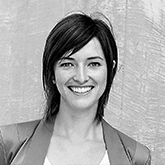
Christina Culwick
has been a researcher at GCRO since 2013. Before that completed both undergraduate (BSc Geography & Maths) and postgraduate studies (BScHons & MSc Geography) at Wits University. Her research interests lie in urban sustainability transitions, resilience, environmental governance, and transforming Gauteng towards a liveable, sustainable, inclusive and just city-region. Her research extends across a range of disciplines, with specific focus on collaborative knowledge creation and the role of transdisciplinary research in informing policy and governance practices. She currently sits on the Gauteng Transport Commission’s panel of experts. She has presented and published her research both locally and internationally. Beyond her GCRO work, Christina holds a postgraduate teaching diploma from UNISA and she worked as an SABC broadcasting meteorologist for 6 years. Her climbing and traveling trips help to sustain her love for Joburg, where she grew up and now lives with her husband.
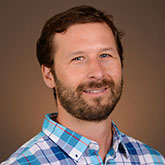
Tyler DesRoshes
is an assistant professor in the School of Sustainability at Arizona State University. He has a PhD in Philosophy from the University of British Columbia and his area of specialization is the history and philosophy of economics. His research is divided into three main categories: nature in economic theory, wealth and human well-being, and philosophy of sustainability science. Tyler was a Founding Editor of the Erasmus Journal for Philosophy and Economics (2008-2015) and his articles have appeared in journals such as History of Political Economy, Journal of the History of Economic Thought and the Canadian Journal of Forest Research. He teaches the history and philosophy of economics (from Aristotle until present), Equity, Justice and Sustainability, and Human Well-Being in the Context of Sustainability.
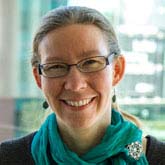
Sonja Klinsky
is assistant professor at Arizona State University’s School of Sustainability. She is particularly interested in the dilemmas inherent in attempts to address complex, multi-scalar, sustainability public policy issues. Within this, she is working on two major research trajectories. First, she is continuing to investigate how climate change policy has been developed and perceived in both domestic and international arenas. This work focuses on the development of cap and trade mechanisms, ongoing debates about justice, and the role of economic modeling in policy decision-making. Second, she is engaged in research that explores methodologies for exploring public opinion about sustainability issues. This has included work on public understandings of “pro-environmental” behavior, public perceptions of justice, and communication strategies for sustainability.
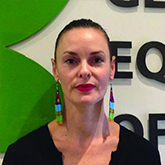
Jackie Dugard
– BA (Hons) (Wits), MPhil (Cantab), PhD (Cantab), LLM (Essex), LLB (Wits) – is an associate professor at the School of Law, University of the Witwatersrand, where she lectures on Property Law. Between February 2014 and December 2016 Jackie was seconded by the University of the Witwatersrand to establish and direct a new gender office, the Gender Equity Office (GEO), focusing on preventing Gender-Based Harm on Campus.
With a background in social sciences and law, Jackie is a human rights activist and scholar, and has published widely on the role of law and courts in affecting social change, as well as on socio-economic rights, access to courts, protest and social movements. Jackie has recently co-edited, with Malcolm Langford, Ben Cousins and Tshepo Madlingozi, the book Symbols or Substance? Socio-Economic Rights in South Africa (2015, Cambridge University Press).
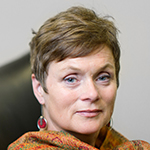
Siri Gloppen
is Professor of Comparative Politics at the University of Bergen, Norway, and founding Director of the Centre on Law & Social Transformation. Her main research interest is the political functions of law and legal institutions and the potential and limits of law as an instrument for social change. At the intersection of law and politics, her work spans theoretical as well as empirical work on the dynamics and effects of ‘lawfare,’ with particular emphasis on effects of legal mobilization around health and sexual and reproductive rights, land rights, and climate change policies. She has also done extensive work on constitution making, democratization and institutionalization of accountability structures, election processes, human rights, transitional justice and reconciliation. Gloppen has led numerous interdisciplinary and cross regional research grants projects, including, presently “Sexual and Reproductive Rights Lawfare: Global Battles,” “Political Determinants of Sexual and Reproductive Health,” and “Land Rights and Inclusive Sustainable Development in India.”
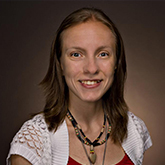
Julianna Gwiszcz
is a Sociocultural Anthropology Ph.D. Candidate in Arizona State University’s School of Human Evolution and Social Change. She earned her Masters of Science in Social Work (MSSW) from Columbia University. Grounded in socioecological justice, Julianna’s research and practice engages with transdisciplinary topics such as the intersections between human rights and sustainable development, critical pedagogy and education for sustainability, and capacity building mechanisms for sustainability transformations. Her current work explores how sustainability-focused experiential learning can build youth capacity to facilitate transformation pathways to sustainable wellbeing. Julianna served as Graduate Research Associate on Dr. Haglund’s and Dr. Aggarwal’s NSF-funded study on natural resource rights. During this time she conducted her own NSF-funded exploratory study on links between human rights education and human security in the face of global environmental change. Committed to the co-creation of knowledge and action, Julianna has collaborated with diverse partners in contexts such as Kenya, Tanzania, South Africa, Guatemala, Brazil, Haiti, the United Kingdom, and various regions in the USA.
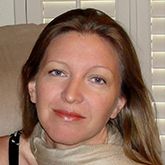
LaDawn Haglund
is associate professor of Justice and Social Inquiry at Arizona State University. She received her Ph.D. in Sociology from New York University in 2005. Dr. Haglund’s research investigates the legal, institutional, and political mechanisms by which social rights—specifically, the human right to water and sanitation, and the right to a healthy environment—are more or less effectively translated into practices. Her work has received support from the U.S. National Science Foundation, the J. William Fulbright Foreign Scholarship Board and the Brazilian Fulbright Commission. She is co-editor (with Robin Stryker) of Closing the Rights Gap: From Human Rights to Social Transformation (UC Press) and author of Limiting Resources: Market-Led Reform and the Transformation of Public Goods (Penn State Press), as well as articles in Latin American Perspectives, Journal of Human Rights, Water Policy, and European Journal of Sociology. She co-coordinates Collaborative Research Network on Economic and Social Rights (CRN 47) for the Law and Society Association, and is past chair of the Human Rights section of the American Sociological Association.
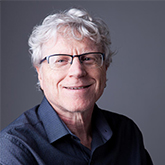
Pedro Roberto Jacobi
is a Full Professor at the School of Education and the Graduate Program of Environmental Science at the Institute of Energy and Environment, University of São Paulo. He is the Head of the Division of Management, Science and Environmental Technology at the Institute of Energy and Environment and Coordinator of the Research Group on Environmental Governance. Dr. Jacobi’s research focuses on Water Governance, Urban Environmental Governance and Social Participation, Social Learning and Education for Sustainability, Cities and Climate Change. He is author of several books and articles on Environmental Governance, Social Learning and Water Governance and Education for Sustainability. He also is Editor of the Journal Ambiente e Sociedade and President of Board of ICLEI- Brazil.
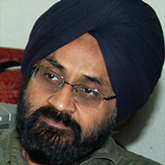
Depinder Kapur
is a senior development and WASH expert and is currently working on the Sanitation Capacity Building Platform of the National Institute of Urban Affairs in New Delhi. He was Country Head of WaterAid in India and before that with CARE, Oxfam, and the Water Supply and Sanitation Collaborative Council (WSSCC) as its National Coordinator. He is a principal Trustee of India WASH Forum, an advocacy coalition, a member Trustee of Environment Law Research Society, a new initiative on environment law, and an advisor to the Tata Water Mission.
He has been associated with citizen campaigns on right to water and sanitation in Delhi. He has worked with the Ministry of Urban Development for the Clean India Mission and was a member of the 12th Five-Year Plan Working Group on Water and Sanitation. Depinder has extensive consulting and research experience working in the fields of rural and urban development, water and sanitation, livelihoods, and disaster response.
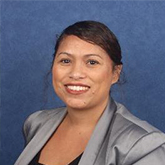
Antonino Manus
is an Associate Director at KPMG where she is responsible for water projects. She has 18 years of water sector experience ranging from policy and strategy development, infrastructure assessment, local regulation and water resource management. Antonino started her career at Department of Water and Sanitation (National Government) in 1998 and was responsible for policy and strategy development, review of powers and functions of local government and monitoring and evaluation of national policy. She was also responsible for implementing water and sanitation projects in communities in the Northern Cape Province. She later joined the City of Johannesburg Metropolitan Municipality as the Director: Water Sector in 2010 where she was responsible for local regulation over Johannesburg water, water resource management, project management and project implementation. She holds a National Diploma in Civil Engineering as well as a Masters in Project Management.
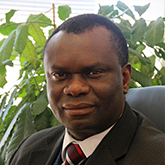
Darlington Mushongera
is a Researcher with the GCRO, a research centre based at the University of the Witwatersrand. His work spans across a number of areas including governance, infrastructure planning, poverty & inequality and benchmarking.
Darlington was instrumental in developing the GCRO Barometer, a tool that depicts development in Gauteng, and has worked on a Global City Profile for Johannesburg in which GCRO partnered with the Brookings Institution. He is currently working on a similar project, in partnership with the City of Johannesburg, aimed at developing a Caring Cities Barometer.
Darlington has also worked on major research profiling poverty and inequality in Gauteng, and has researched widely on water services delivery in Johannesburg. He holds BSc Economics, MSc, and MPhil degrees and is registered for a PhD in Urban and Regional Planning at the University Witwatersrand. His thesis is looking at data and knowledge production in the City of Johannesburg.
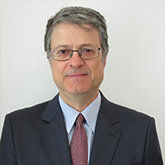
Luis Roberto Proença
has been conducting investigations and filing lawsuits for a specialized environmental department for the Ministério Público of São Paulo State in Brazil since 2000. His education includes a Public Administration Degree from Getulio Vargas Foundation and a Law and Masters Degree from the University of São Paulo School of Law. He was selected by the Fulbright Commission to join the Hubert H. Humphrey Fellowship Program in the United Sates in 2003. Activities included participation in courses at the University of California, Davis School of Law and a professional affiliation at the office of Regional Counsel, US Environmental Protection Agency (EPA), Region IX (San Francisco, CA). Luis worked as a consultant for the Secretariat of the Convention on International Trade in Endangered Species of Wild Fauna and Flora (CITES) based in Geneva, Switzerland, in the capacity of “Enforcement Support Officer” in 2013. He is author of papers on the investigative performance of the Ministério Público in increasing access to justice.

Ajay Raghava
is Deputy Director in the Climate Change Division of Ministry of Environment, Forest & Climate Change, Government of India. MoEFCC is the nodal Ministry for all matters related to policy development & implementation, science & research and international cooperation in the area of climate change. His current responsibilities include scientific programs like black carbon and long term ecological observatories, matters related to preparation of National GHG inventories, National Communications and IPCC.
He has experience in policy formulation and implementation of river conservation programme in India and was involved in implementation of National Ganga River Basin Authority’s programme, which focuses on pollution abatement measures for improving water quality of River Ganga. Ajay was a Hubert Humphrey Fellow for the year 2012-13 at Cornell University, USA in the area of water resources management and river basin planning.
Previously he served at Central Pollution Control Board and worked in the area of environmental planning, industrial pollution control and environment management. He has been involved in development of planning tools for ecologically based land use planning for the urban areas, and developed approaches for siting of industries. Ajay has degrees in Civil Engineering, Environmental Planning and Energy & Environment Management. He was a British Chevening Scholar for Environment Management in 1999 at University of Bradford, UK and a Fulbright Fellow for Environmental Policy & law in 2003 at US Environmental Protection Agency, Washington DC.
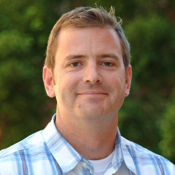
John Sabo
is an ecologist and professor in the School of Life Sciences at Arizona State University. He studies the importance of water in determining the viability and resilience of animal and plant populations in river and riparian ecosystems. He and his research team use large-scale field experiments and the application of stable isotopes to understand how drought and floods influence freshwater and terrestrial biodiversity. They also study how these extreme events affect food web structure. Dr. Sabo also develops statistical techniques to measure the resilience of river food webs and the fisheries that these food webs support. He collaborates broadly across disciplines, synthesizing large datasets to answer questions about the impacts of floods and water scarcity on the interactions between humans and biodiversity. Dr. Sabo’s work is being applied to problems in watershed management and freshwater sustainability to understand how water scarcity and extreme weather influence food security and biodiversity.
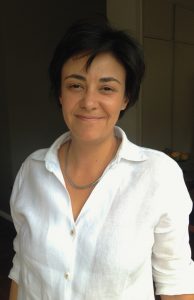
Marussia Whately
is a water and sustainability consultant who currently serves as coordinator for the Alliance for Water, a coalition of civil society organizations proposing solutions to the water crisis in São Paulo. She has coordinated and advised multiple projects and proposals concerning water governance, including the study Água@SP, the project IMAZON/CLUA (Climate and Land Use Alliance, Pará), the #florestafazadiferenca initiative, the Watershed Program (Programa Mananciais) of São Paulo, and the “Eye on the Watersheds” campaign for ISA (the Socio-Environmental Institute). She has written and edited several publications on water, sanitation, and municipal environmental management. Ms. Whately has a degree in Architecture and Urbanism from Mackenzie University (1997) with specialization in management of water resources and urban environment.
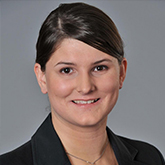
Inga Winkler
is a lecturer at the Institute for the Study of Human Rights at Columbia University. From 2009 to 2014 she was the Legal Adviser to the UN Special Rapporteur on the Human Rights to Water and Sanitation. She has been in residence as a visiting scholar the Center for Human Rights and Global Justice at NYU, at Stellenbosch (South Africa) and at Berkeley, where she contributed to clinical teaching. Inga has also consulted for various international organizations and NGOs including the European Parliament, FAO, UNDP, the UN Water Supply and Sanitation Collaborative Council, and the Global Initiative for Economic, Social and Cultural Rights. Inga holds a German law degree and a doctorate in international human rights law. Her thesis deals with the human right to water and its implications for water allocation.

